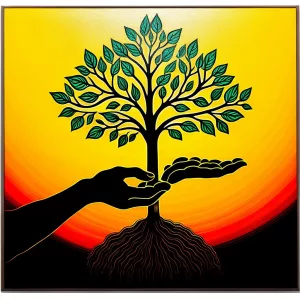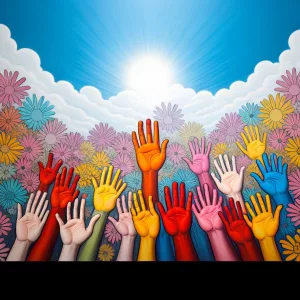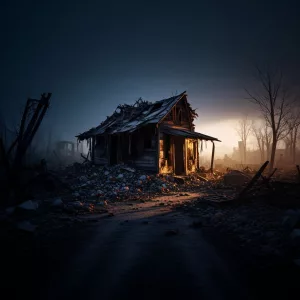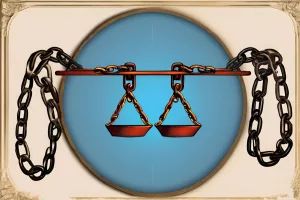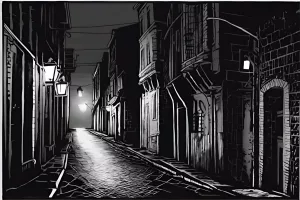Lieutenant Colonel Nondumiso Mabaso is a shining hero in the fight against genderbased violence in South Africa. Working in the Family Violence, Child Protection, and Sexual Offences Unit, she helps victims find their voices and fights for justice. With her compassion and expertise, she has helped put many offenders behind bars, including those who have harmed children. Mabaso believes that everyone in the community shares the duty to protect the vulnerable, spreading hope and inspiring action to create a safer world for all. Her work is a powerful reminder that together, we can make a difference.
Engines of Accountability: The Tireless Pursuit of Social Justice in South Africa’s Parliament
South Africa’s Parliament plays a powerful role in fighting for social justice by closely watching how health, education, and social services are delivered to the people. Through careful oversight, committees expose problems like xenophobia and unequal access, pushing for fair laws and policies that include everyone. They hold meetings where government actions are shared openly with the public and media, making sure democracy stays alive and strong. This hard work helps turn big promises of equality into real chances for all South Africans to live healthier, happier lives.
Mandela Day is a special day in South Africa that honors Nelson Mandela by encouraging everyone to give 67 minutes of service, one minute for each year he fought for justice. It’s a day full of action, where people help others, work together, and keep fighting against poverty and inequality. The spirit of Ubuntu—meaning “I am because we are”—guides this day, reminding everyone that kindness and community build a better future. Parliament and citizens join hands to turn Mandela’s dreams into real change, showing that the struggle for fairness and unity is still alive and belongs to all.
On 22 July 2025, South Africa’s Parliament came alive with urgent debates and important decisions. They renewed efforts to investigate statutory rape, aiming to protect young victims and bring justice. Lawmakers also focused on appointing trustworthy pension fund managers and tackled big bills about Eskom’s debt, taxes, and gambling rules. Throughout the day, the spirit of fairness, transparency, and hope for a better future shone brightly in their work.
The “And yet we imagine” exhibition at the Desmond and Leah Tutu Legacy Foundation in Cape Town is a vibrant celebration of creativity and hope. Running until May 2, 2025, it showcases diverse art forms, from poetry to performance, all aimed at inspiring a sustainable future. Visitors can join workshops and discussions, sharing their own dreams for a better world. This exhibition calls on everyone to imagine together, highlighting the power of art to spark change and unite communities in facing our biggest challenges. It’s a beautiful reminder that, even in tough times, we can dream of a brighter tomorrow.
In the shadowy settlement of Middelpos, young Joslin Smith faces a heartbreaking life filled with poverty and neglect. Her mother, Kelly, struggles with a dangerous addiction, leading to shocking accusations that she sold Joslin to buy drugs. The community is filled with anger and sorrow, as neighbors cry out for Joslin, yearning to protect their own. This tragic tale shines a light on the deep issues of poverty and the need for change, showing that every child deserves a safe and loving home. Through Joslin’s story, we are reminded of the importance of caring for the most vulnerable among us.
A terrible event shook the peaceful town of Wellington when a petrol attendant was violently attacked at the local BP garage. Two men jumped out of their car and, after a simple request to park properly, unleashed an awful assault on the worker. The shocking incident was caught on video, spreading outrage throughout the community and sparking calls for justice. Residents, outraged by the violence, are rallying together, demanding accountability and a safer environment. This incident serves as a painful reminder of the importance of respect and unity in their community.
In Cape Town, Uturn Homeless Ministries and The Hope Exchange have joined forces to fight homelessness. This exciting partnership, called ‘The Hope Exchange operated by Uturn,’ combines their strengths to support those in need more effectively. By merging Uturn’s innovative recovery programs with The Hope Exchange’s longstanding services, they aim to provide better living conditions and pathways for the homeless. Together, they are shining a bright light of hope, helping people rebuild their lives and reconnect with their communities.
In postapartheid South Africa, the fight for equality faces many tough challenges. Thuli Madonsela, a strong voice for justice, criticizes AfriForum for resisting the changes needed to treat everyone equally, especially after the unfair advantages of the past. She believes that true equality means everyone must be treated the same, pushing against old privileges. Moreover, AfriForum’s actions, like seeking support from international figures, complicate the journey towards fairness and unity in South Africa. As the nation works to heal its wounds from apartheid, embracing inclusivity and acknowledging history is vital for a brighter future.
Athol Fugard, a great South African playwright, has left a lasting mark on theatre and social justice. His powerful plays, like *Master Harold…and the Boys* and *Sizwe Banzi is Dead*, courageously tackled the harsh realities of apartheid, giving voice to the struggles of many. Born in 1932, Fugard’s early experiences shaped his commitment to challenging racial divides through storytelling that connects deeply with audiences. Even after his passing at 92, his inspiring work continues to resonate, reminding us of the strength of art in sparking change and understanding in society.
In Wallacedene, South Africa, the community is fighting hard for equal education. At Solomon Mahlangu Primary School, students face crumbling buildings, no playgrounds, and missing resources, while nearby Blue Ridge Primary has everything they need. Parents organized a powerful protest, moving desks to show their demand for better conditions for their kids. This struggle highlights deeprooted inequalities in South Africa’s education system and the community’s determination to secure a brighter future for their children. The events in Wallacedene reflect a larger battle for fairness and justice in education, making their fight a symbol of hope for many.
In South Africa, the battle over social grants is heating up as many people are getting denied the help they desperately need. The South African Social Security Agency (SASSA) is facing backlash for its strict rules and a rise in grant denials, which some say hurt the most vulnerable citizens. Groups like PayTheGrants are pushing back, claiming these denials violate people’s rights, and they are taking the fight to court. As the tension grows, the fate of many families hangs in the balance, highlighting a struggle for survival amidst a complex web of policies and economic challenges.
In Cape Town, a vibrant call for fair housing is echoing through the streets as activists demand the use of the Tafelberg site for social housing. Hundreds gathered outside Premier Alan Winde’s residence, urging him to be open about R500 million set aside for housing, a plea fueled by a history of injustice. The protesters, undeterred by legal obstacles, continue their fight for a better future, highlighting the city’s deeprooted struggles with housing and inequality. Through their determination and unity, they showcase a community’s dream for a more just and equitable Cape Town.
In South Africa, a heated debate is brewing over the National Minimum Wage (NMW). The Democratic Alliance (DA) worries that raising wages could lead to more job losses, especially for young and lowskilled workers. On the other side, COSATU pushes for a wage increase to fight poverty and make life fairer for workers. This clash reflects deep economic struggles and a long history of inequality, making the future of wages a critical issue for many people in the country.
A bright new hope for justice has emerged in South Africa as a recent court ruling changes the way consent is viewed in cases of genderbased violence. The Pretoria High Court declared parts of the Sexual Offences Act unconstitutional, shifting the responsibility of proving consent from victims to the accused. This breakthrough aims to better protect victims and ensure fairness in the justice system. With the backing of the Embrace Project, this ruling represents a significant step forward in the fight against genderbased violence, igniting a powerful movement towards equality and justice in the nation. As South Africa navigates this crucial moment, there is a renewed call for change that champions the rights and dignity of all.
On a seemingly ordinary day in Glencairn, tragedy struck when Ben Tuzee was brutally murdered during a robbery while helping his niece, Kaele. The community came together in an incredible show of strength, rushing to help the injured and supporting each other through their grief. As the legal battle unfolded, brave Kaele faced her trauma to identify the attackers, highlighting the power of resilience. Ben’s story serves as a reminder of life’s fragility, igniting a collective quest for justice and healing in the hearts of those he left behind. Through this heartwrenching tale, the spirit of community shines bright, proving that even in darkness, hope can emerge.



